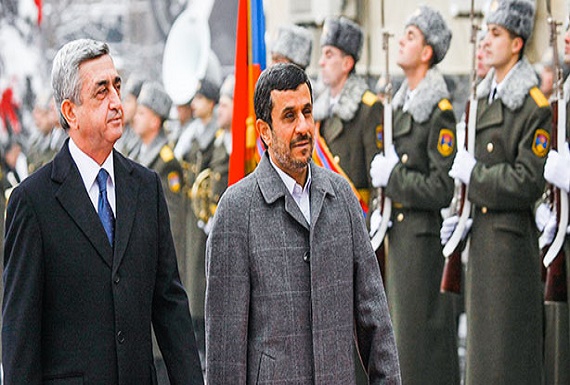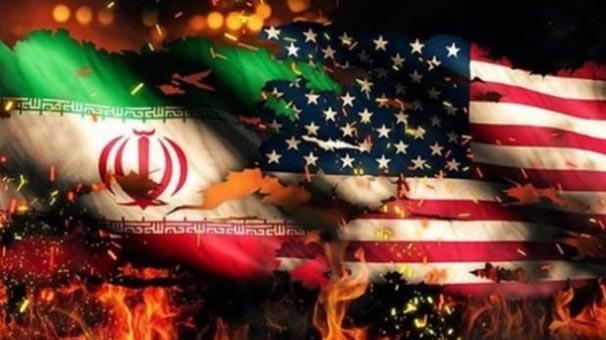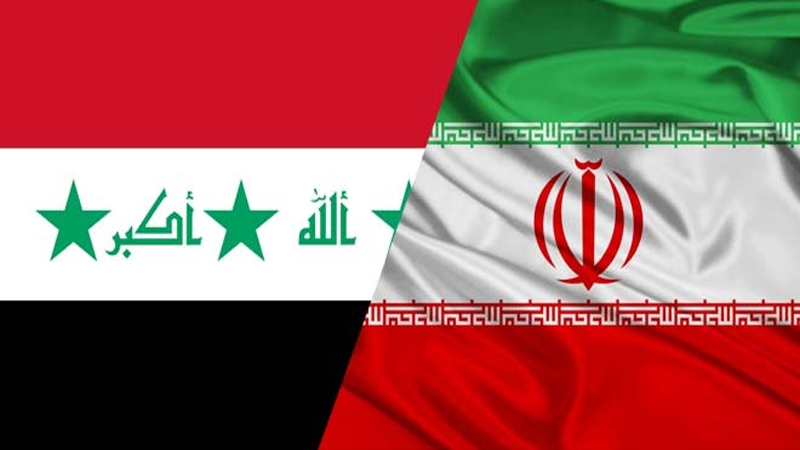Armenian-Iranian relations: from past to future

Araz News: August 19, 2015, Wednesday,The probable impact of the recent nuclear deal between Iran and the five permanent members of the United Nations Security Council (UNSC) and Germany (P5+1) that would end longstanding embargoes against Iran for its nuclear ambitions upon Iran’s relations with Armenia deserves attention because both countries have been alienated in regional politics,today zaman reported.
Iran is one of the crucial countries for Armenia. This became apparent when Armenia declared independence after the collapse of the Soviet Union. Azerbaijan and Turkey shut down their border gates, which have not been used since the Nagorno-Karabakh War. Iran was a critical opening for Armenia because it was isolated from the world due to the border closure. Iran also immediately recognized Armenia, signaling that it would not leave this country alone. In the following years, the two countries developed cooperation in different fields and the leading figures held mutual visits.
The two countries also enhanced ties in the fields of commerce, transportation and energy. Iran and Armenia, two countries not included in the Baku-Tbilisi-Ceyhan pipeline project, decided to build the Iranian-Armenian natural gas pipeline. Completed in 2008, the pipeline started to carry Iranian natural gas to Armenia. Owing to this project, Iran was able to sell its gas in the Armenian market and sought to open up to European markets through Armenia; Armenia, on the other hand, welcomed this project because the pipeline would make it less dependent upon Russia. Even though Russian policies have served as obstacles to the attainment of these goals, this project contributed to the agenda of bilateral relations between Iran and Armenia. In the meantime, Armenia sold electricity to Iran.
In addition to joint ventures in the field of energy, Iran and Armenia are also developing cooperation in the field of transportation as well. The Iranian-Armenian railway and the North-South highway construction can be cited as major examples of this. The parties made a preliminary deal on construction of a railway project that would travel all through Armenia in 2009.
Iran is one of the countries that host an Armenian minority who are treated well there; nearly 80,000 ethnic Armenians live in Iran today. Iranian Armenians do not serve as the main basis of the strong cooperation between Iran and Armenia but they do contribute to the enhancement of bilateral ties.
Despite implied objections by the US and the European Union, Armenia did not want its relationship with Iran to deteriorate. And Iran, in response, cared about its relations with Armenia without paying attention to the sanctions by Turkey and Azerbaijan. The bilateral relations started having a psychological and symbolic significance rather than economic and strategic importance.
Even though the new era brings uncertainties, it could be argued that the bilateral relations between the two countries will improve further unless some radical changes take place in the domestic policies of the parties or the regional political setting.
























